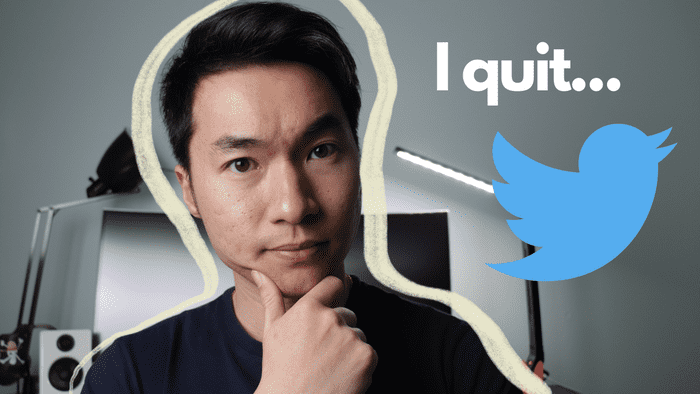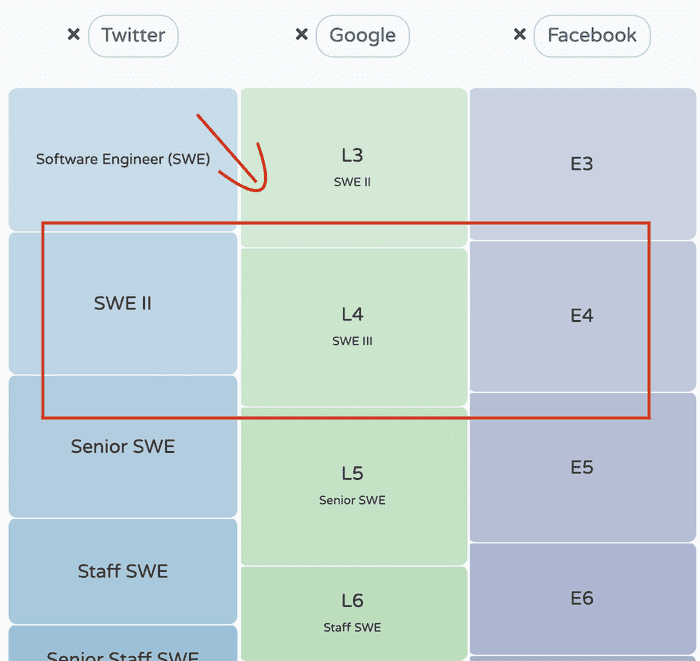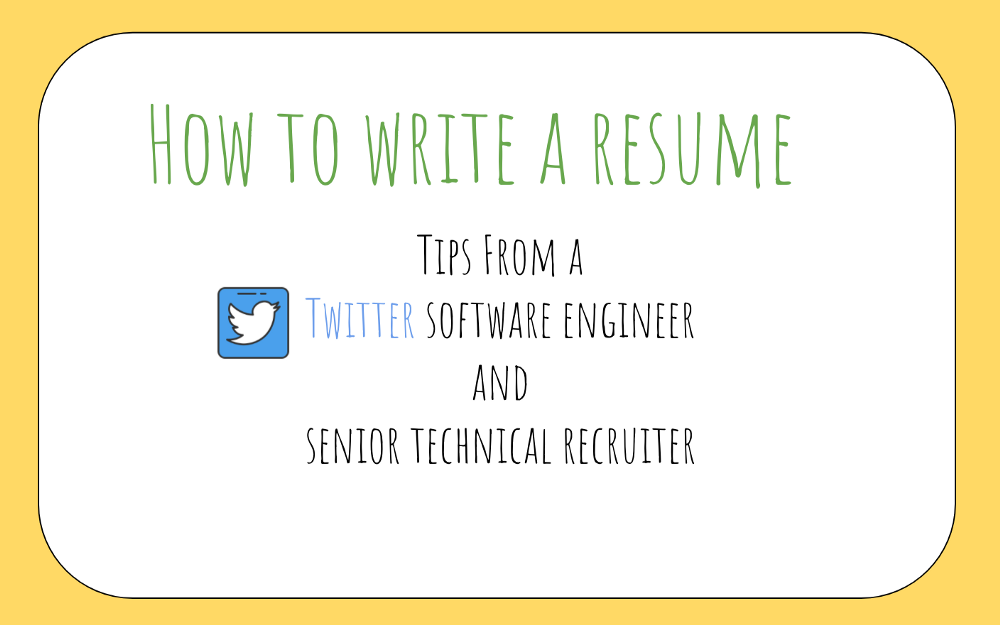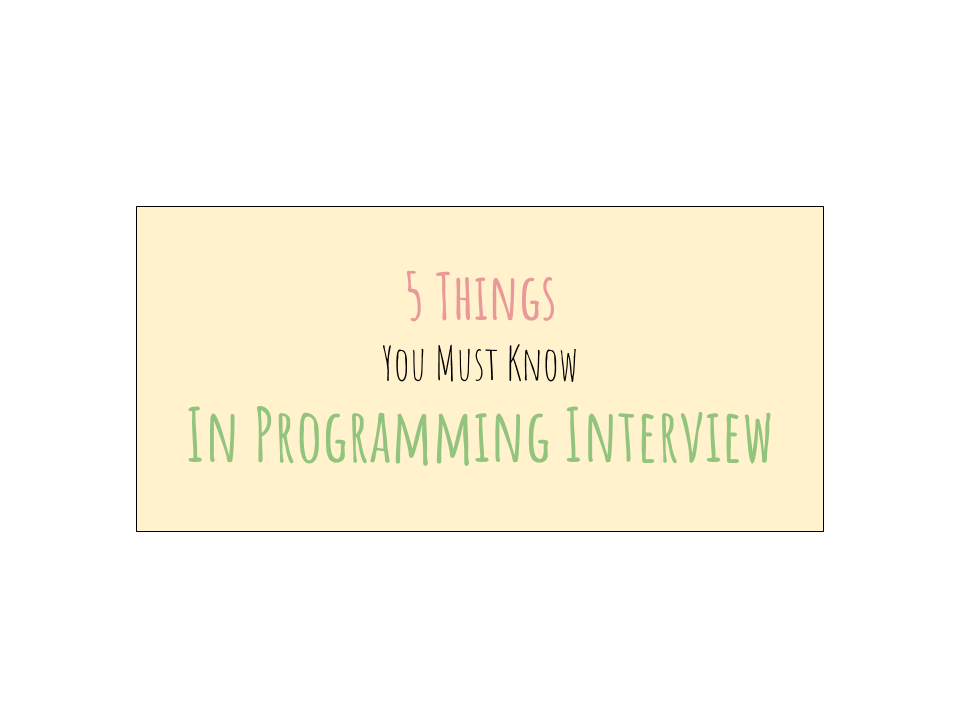Why I Left Twitter As a Senior Software Engineer
My experience working at Twitter and why I decided to quit in the middle of a pandemic.
|

(My Youtube version of this article)
Last Friday was my last day at Twitter as a Senior Software Engineer. After 3 amazing years, I decided to leave the company. This article shares the context and decision-making process behind my leaving. Read here for my story on how I landed at Twitter after receiving multiple offers from FAANG companies like Google and Amazon.
What was it like before I left
I had been at Twitter for 3 years as a mid-level software engineer or E4-equivalent at Facebook / Google. At this level, the expectation is to work on products with fixed scope and able to navigate the code base without much hand-holding. Read how to land interviews with top-tier tech companies to increase your chances of landing interviews with companies like Twitter, Facebook and Google.

I really enjoyed my time at Twitter; I was promoted to senior software engineer and tech lead for my team, I had built great relationships across the organization, and people around me were some of the best engineers I’ve ever worked with, and I had a supportive manager who was looking out for me.
Compensation was great (how much software engineers usually make), work-life balance was amazing as Twitter had very generous vacation policies, especially during COVID19.
How generous, you might ask? Let me put it this way: Twitter was so concerned about their employees’ wellbeing that they mandated company holidays in the past few months to make sure employees were taking time off to take care of themselves.
In short, life was great — I had a supportive manager, great relationships with people around me, and a comfortable position to succeed.
So why did I choose to leave, and why now?
Finding passion and a Reason for Being
I’ve been working in the Ads industry for the majority of my career. I had spent my early 4 formative years at a startup working on ads, and the next 3 on Twitter’s Ads measurement team measuring how ads performed.
While new launches are often exhilarating, I wanted to see what it’s like beyond a familiar domain.
I took a step back from my day-to-day and reflected on what skills I wanted to learn. This put me on a path of self-reflection, which was great during COVID-19 since I had nothing else to do anyway.
Ikigai — Reason For Being
I pulled up my trusty decade-old journal, and traced the goals I had set out early in my career.
One thing that stood out was a concept called Ikigai, or “Reason for Being”, which can be loosely understood as having a purpose or direction in life.
It prescribes a way of life that makes a life worth living. It’s incredibly simple yet insightful.
Ikigai outlines 4 things that lead to a happy life:
- What you love
- What you are inherently good at or have talents in
- What the world needs (meaning)
- What you can be paid for

The intersection of all 4 is where you’ll find deep satisfaction in the work that you do and a life worth living.
With that said, I found that increasingly I was leaning towards 1) what you’re good at 2) what the world needs 3) what I can get paid for.
In other words, I had become comfortable but I needed to find something I’m passionate about. And this realization had planted the seeds in my mind, to search for something I love.
Finding my next S-curve
I’m obsessed with growing and getting better (read my notes here). I’m often asking: how do I make sure I’m always learning and improving?
My skip manager at Twitter shared an important insight with me that stuck:
There’s an S curve in everyone’s career. Your goal is to find where you stand, and how you can find that next S-curve.
When I joined Twitter, I had no experience in building teams nor had I worked on large scale, distributed systems, and neither did I know how to pick, serve and measure ads — I was on the low-end of my S-curve.
I had set out several goals for myself:
- To learn about distributed systems
- To build a product that will impact millions
- To learn skills that would prepare me for a tech lead position
I am very thankful and grateful for the opportunities that were given to me. I felt now was the right time to find my next S-curve.
Growth is non-linear — there’ll be a slow period of learning, followed by strong performing, and finally thriving.
Remember: always know where you’re at on that S-curve.
Experiencing new culture
A company culture is often easily said, but difficult to comprehend.
It’s important for me to experience different company cultures.
It is not until you’ve been through a company’s off-sites, reorgs, performance reviews that you really understand how they treat their employees. Amazon has a fabled set of leadership principles (Amazon Leadership Principles) that make up the backbone of their culture, and Netflix has a slide deck on their values.
Are employees assets or commodities? Does a company choose to grow at all costs or do they sacrifice speed for sustainability? Do they promote based on impact or tenure?
The answers to these questions are often non-obvious. And that’s what culture really is.
My personal goal is to build my own company in the future, and I think it’s important to experience different companies in different stages, and learn what makes them unique.
Why leave now?
I’ve discussed what motivated my departure and I wanted to cover why leave now, especially amidst all the chaos and uncertainty.
I’m very fortunate to live in a time when demands are high for what I do and the costs of interviewing have lowered substantially. If you’re interested in learning about how to interview, read about my mentorship program here where mentees have landed offers from top-tier tech companies.
COVID-19 led to companies offering virtual on-site interviews where candidates are put on video conference calls. This is in stark contrast to spending 5–6 hours on company office, not including the time to commute back and forth.
In short, the cost of looking for new opportunities is low and the reward-to-risk ratio is high.
Maybe there’s something new out there that’ll absolutely change my world view on software (optimism in me), or maybe there’s nothing exciting happening in the world today (pessimist in me). Either way, I’ll never know the answer until I put myself out there.
It’s important to note that I believe virtual interviews is the future for many jobs in the future, and especially software engineers. I think it’s critically important to learn how to interview in virtual settings to prepare for the future. Overcoming FAANG is my new e-course that will show you how to prepare for technical interviews AND thrive in this future mode of interviewing.
What’s Next
The reward of suffering is experience.
A quote that I really like is, the reward of suffering is Experience. When we find ourselves struggling and in pain, that’s a sign that we’re breaking out of our former shells and extending our wings. All our scars become badges of honor that we wear on our sleeves. This experience will shape who we are and who we become.
After taking the past few months to collect, condense and crystallize my thoughts, I decided that it was time for a new chapter in my life.
As to what’s next, I’ll be joining Facebook as a Senior Software Engineer. Why Facebook? That’s question for a different day. For now, I’m excited about what lies ahead, and Twitter will forever have a special place in my heart.
Follow along my journey on Twitter (@zhiachong) for real-time updates, LinkedIn and Youtube.
Resources You Might Like
- Overcoming FAANG — a course to prepare to ace technical interviews in a remote-setting. Use this code (ZhiaChong) to get 30% today.
- What I’ve Learned In 1 Year At Twitter
- Day in the life of a Twitter software engineer (during COVID19)
- How I landed multiple offers from FAANG companies without an Ivy League degree
- What is it actually like working at a FAANG company


